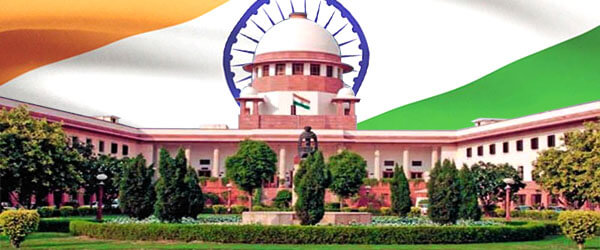India’s Crypto Ban in Danger as SC Orders Hearing

India’s ban against cryptocurrency is in danger of getting repealed as the country’s highest court decided to hear petitions against the prohibition.
The petitioners challenged the directive of the Reserve Bank of India (RBI), India’s central bank, to prohibit financial institutions from transacting with cryptocurrency-related companies.
The Supreme Court of India has ordered the transfer of five petitions, filed in several courts, to the SC. The hearing of the petitions is arranged on July 20 later this year.
Anirudh Rastogi from TRA, a law firm representing several bitcoin exchanges in India, stated that the ban infringes the freedom of those who engage in crypto-related businesses.
Rastogi, managing partner of TRA, said:
“It has come with this overarching order that can be challenged on several counts. There is a right to trade and it cannot be restricted in absolute terms. Only reasonable restrictions can be imposed and applied but a complete prohibition as restrictive as this was unnecessary.”
Other petitions, including one filed by startup Kali Digital Ecosystems, claim that the RBI circular dated April 6, 2018 is an arbitrary and unconstitutional decision. The ban will prevent the startup from acquiring bank services necessary to operate its own crypto exchange business.
| Related: North American Regulators Form Operation Cryptosweep to Crack Down on Fraud ICOs
RBI Strikes Crypto Down
On April 6, the RBI released a directive prohibiting banks to transact in virtual currencies. The directive, which will take effect on July 6, will ban financial institutions regulated by the Reserve Bank from dealing in cryptos or providing services to crypto-related businesses. Institutions currently transacting with such businesses are ordered to cut ties before the ban starts.
The RBI has repeatedly warned traders and investors for five years about the various risks that cryptocurrency-related transactions can bring. Bibhu Prasad Kanungo, deputy governor of the RBI, said:
“[While] the regulatory responses to these tokens are not uniform, it is universally felt that they can seriously undermine the [Anti-Money Laundering] and [Financial Action Task Force] framework, adversely impact market integrity and capital controls.”
Kanungo added that the digital tokens have the capability of endangering a country’s financial stability.
Crypto-Induced Reactions
While India’s ban is yet to take effect, China’s own prohibition was already implemented. The People’s Bank of China (PBoC), China’s central bank, has declared virtual currencies not legal tender. Since the virtual coins were not issued by any monetary authority, the PBoC declared that they cannot be used in market transactions and cannot be exchanged for legal currencies.
Meanwhile in Oceania, the Republic of Marshall Islands will issue a digital coin as its own legal currency. After long and heated deliberations, the island country signed a bill last February that declares virtual coin Sovereign (SOV) its legal tender to supplement the US Dollar, its current legal currency. Sovereign is based on a blockchain that, unlike Bitcoin’s (BTC) pseudo-anonymous network, will instruct users to provide personal information to the country’s financial institutions.
Analysts and observers expressed their interest at how countries have different approaches to cryptocurrencies. Analysts have said that an efficient method of regulating cryptocurrencies will emerge after several efforts from different governments.
| Related: China Sees Ethereum as Best Blockchain Network, Rates Bitcoin Mediocre




